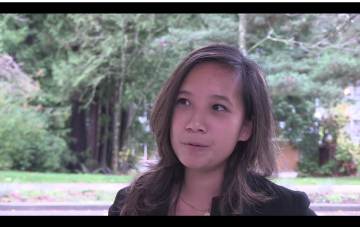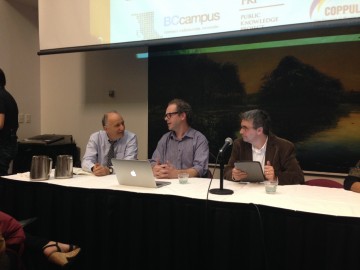Student Publication
Stay sharp on social media: 10 LinkedIn Do’s and Don’t’s
By Jon Hernandez on January 20, 2016 | Tagged with
As the last members of the human race that will be able to remember video stores and landlines, millennials are also the first generation to have their entire adult lives recorded by social media. The Generation Y’ers are finally starting to cultivate their professional careers, and keeping up a positive presence and reputation online is the key to making […]
How ‘open data’ can actually be closed
By Jon Hernandez on January 12, 2016 | Tagged with
Last October, I had the privilege of covering Open Access Week for the Digital Tattoo Project, where some of the most forward-thinking minds in the world of ‘open access’ learning delivered a series of presentations that ultimately boiled down to one essential idea: everyone should have access to knowledge and information. The premise seems obvious, […]
UBC Streeters: ‘Cyber Vetting’
By Jon Hernandez on January 4, 2016 | Tagged with Digital identity, employee, employer
The Digital Tattoo Project took to the streets to find out what UBC students know about ‘cyber vetting’, or online vetting–when potential employers vet people’s online presence or “internet reputation” on social network services such as Facebook, MySpace, Twitter, Bebo, and LinkedIn. To find out more about the Tweet-deleting app mentioned in the video, visit […]
Beware of the Whistler Scam
By Jon Hernandez on November 18, 2015 | Tagged with
As the sun sparkles and the sultry peaks of British Columbia’s most sought-after mountaintops, it’s pretty easy to find yourself blinded by the beauty. Each year, Whistler brings in over 2.7 million tourists to bask in the wonder—and many activities—that the resort-town provides. It boasts everything from snowboarding to bungee jumping, and has the capacity […]
Open Access Week: a Social Media Snapshot
By Jon Hernandez on November 3, 2015 | Tagged with
Last week, some of the greatest minds in Open Access met in a panel to discuss the success, challenges and future of open access in the forms of scholarly publishing, textbooks and education. Take a look at the social media timeline of the event below. [View the story “Open Access Week: Social Media Snapshot” on […]
When Social Media Bites Back: Election Edition
By Jon Hernandez on October 15, 2015 | Tagged with digital tattoo, employee
As we gear up for the upcoming election, it’s no secret that social media has influenced this years’ campaigns more ways than one. It seems each time I scroll through my Facebook newsfeed, I deal with the collective ‘Stop Harper!’ screams of my youthful friends, while a Justin Trudeau advertisement curiously appears on my sidebar […]
Are Private Groups Really Private?
By Jon Hernandez on September 13, 2015 | Tagged with
It’s that time of year again—the first week of a brand new fall semester that screams ‘fresh start.’ Whether you’re sporting a brand new laptop for the year, or flaunting a new set of kicks (is that what the kids are still calling it these days?), the new school year always offers every student the […]
Phone Security 101
By Joey Levesque on July 15, 2015 | Tagged with
Universities can be dangerous places. Exams, assignments, thieves and faculty lie in wait for the unsuspecting undergrad; of these, only theft can be (responsibly) avoided. This is important in the age of the smartphone; losing your device can lead to identity theft, bank fraud, and all sorts of scary-bad-no-fun situations. What can students do to […]
Academics Anonymous
By Joey Levesque on June 22, 2015 | Tagged with
As we’ve said many times before, privacy is essential to academic freedom and free expression. Anonymous browsing is one way for academics to ensure their privacy online (to the extent that’s possible) and can be done in a number of ways; chief among these are virtual private networks (VPNs), proxy servers and TOR – a browser purpose-built […]
Cyberattacks and you
By Joey Levesque on June 17, 2015 | Tagged with Digital identity, digitaldossier, Learn, Protect
The digitization of universities has rendered these centres of open information exchange vulnerable to new forms of espionage. While attacks are focused on research – particularly cutting-edge engineering and biomedical technologies – personal information about students and faculty is also a target. While the university has an interest in preventing or at the very least […]










